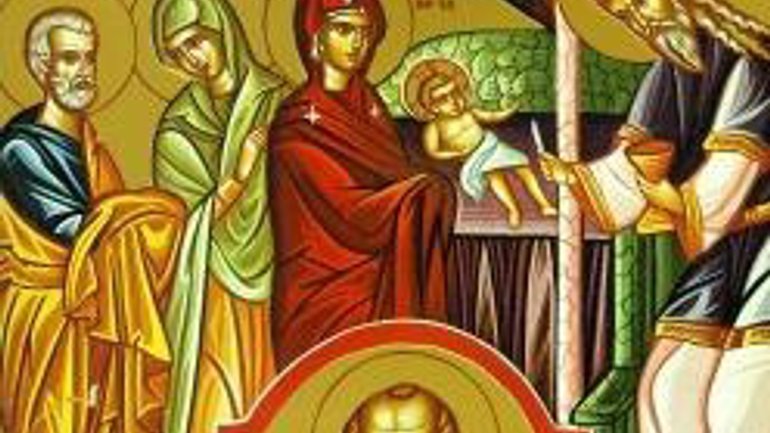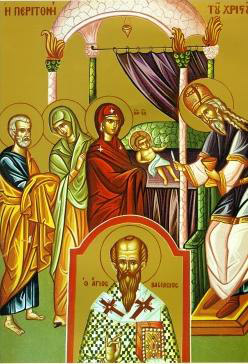Feast of Circumcision of Our Lord celebrated

 The churches that follow the Julian Calendar mark the feasts of Circumcision of the Lord and the Holy Name of Jesus on January 14. On the same day, they commemorate one of the church fathers, St. Basil the Great.
The churches that follow the Julian Calendar mark the feasts of Circumcision of the Lord and the Holy Name of Jesus on January 14. On the same day, they commemorate one of the church fathers, St. Basil the Great.
The event of the circumcision of Jesus is described in the Gospel of Luke (2:21): “On the eighth day, when the boy was to be circumcised, he was given the name Jesus, which was announced by an angel before his conception in the womb.”
In the Old Testament, circumcision was a law signifying the covenant of God with Abraham and his descendants: the rite was of a great importance as it symbolized membership in the religion and nation and subordination to the law and duties. Non-observance of the law meant a breach thereof and exclusion from the nation.
The church stresses in the event of the circumcision of Jesus Christ primarily sacrifice and self-denial: each Christian must practice circumcision of his or her lusts and evil desires.
The feast of circumcision is not one of the 12 greatest feasts even though it is considered an important one.
The church also commemorates St. Basil the Great.
He was born in 330, in Caesarea, and came from a noble family known not only for its riches but also its zealous Christian Faith. In 362, he was consecrated deacon by Bishop Meletius and, after two years, he was ordained presbyter by Bishop of Caesarea.
The saint wrote many works and left a large spiritual heritage of dogmatic, moral, ascetic, and polemical works, an explanation of the Holy Scripture and 366 letters. He also compiled the text of the Divine Liturgy and contributed to the formation of the teaching about the Holy Trinity. He is recognized as a Great Teacher of the Church.
St. Theodore Studite calls St. Basil “the father of Greek monasticism and the first among all the fathers.”









